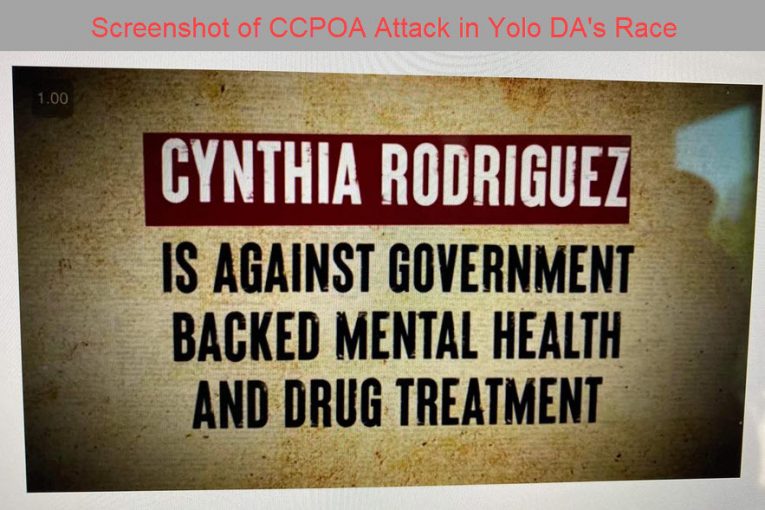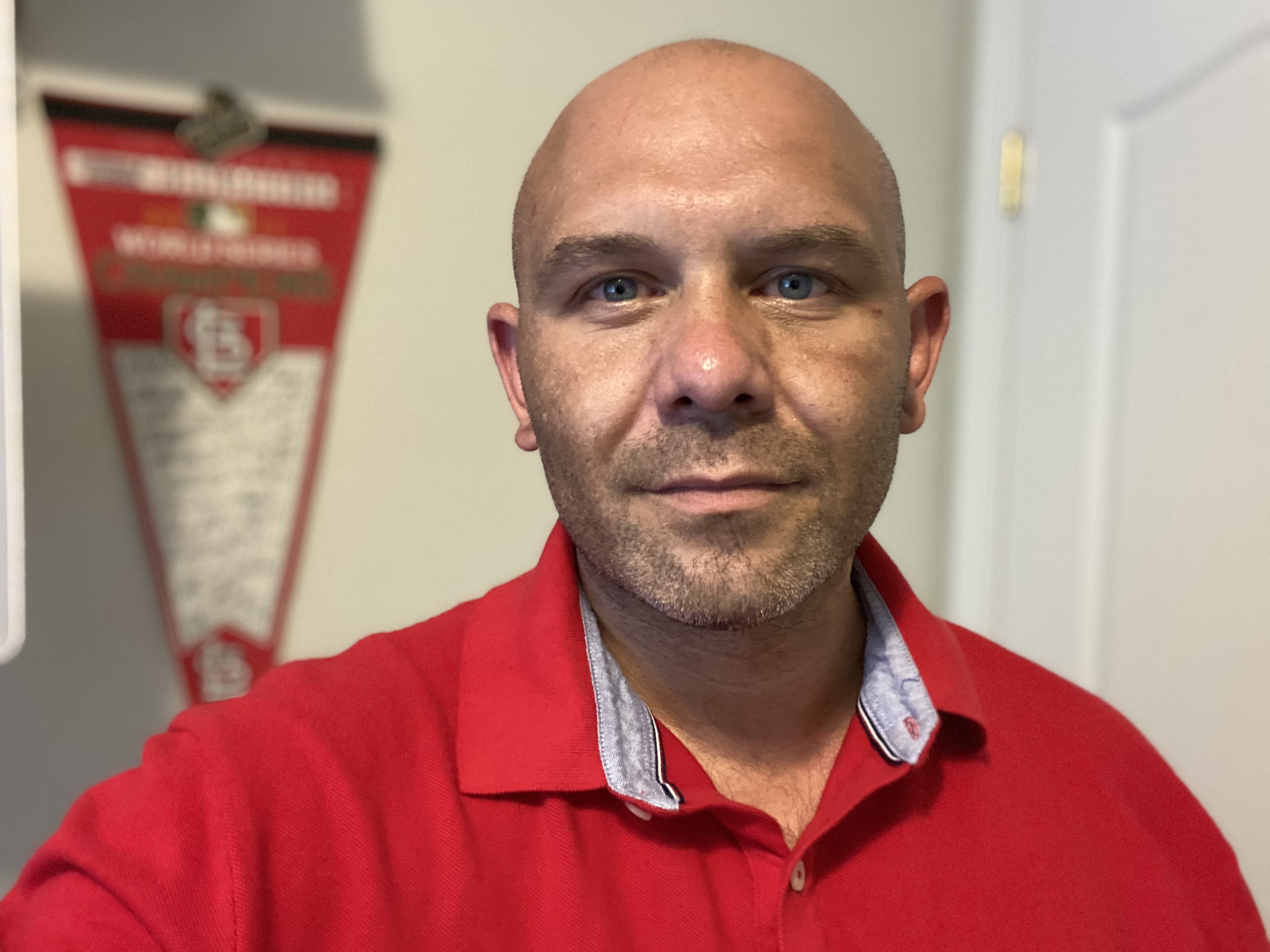

By Robert J. Hansen
Woodland, CA – Cynthia Rodriquez, candidate for Yolo County District Attorney was attacked in a recent ad paid for by the California Correctional Peace Officers Association claiming she does not support government-backed mental health and drug treatment.
Rodriquez fully supports government mental health and drug treatment programs, just not AB 1928 or its predecessor AB 1542 which offers drug treatment for those convicted of felony drug convictions.
“Not offering rehabilitation until people have to be in jail is against everything we know about successful treatment,” Rodriquez said.
Rodriquez thinks that rehabilitation should be offered in the community before individuals are faced with jail time and that Assemblymember Kevin McCarty’s AB 1928, sponsored by Yolo DA Jeff Reisig, is more money for the courts, not the community.
“We are taking money and instead of dedicating it for the community and using it in jail. We have a habit of taking these funds that are meant to help the community in Yolo County and using them to keep people incarcerated,” Rodriquez said.
Rodriquez is “absolutely for” community programs and community resources being spent in the community, not in the jail.
“To twist that around and try to make it sound like I don’t want to help people with mental health or drug problems,” Rodriquez said. “It is the opposite.”
She said she wants to use the most effective tools to help substance use and mental illness which are in the community and not in jails or prisons.
“All of the experts (noted) on drug treatment and successful management of addiction are done voluntarily on the outside and not in custody,” Rodriquez said.
Rodriquez said Yolo Public Defender Tracie Olson said it best when she said it’s giving the DA all types of tools that are not necessary for this situation.
At the April 12 Yolo County Board of Supervisors (BOS) meeting, Yolo Public Defender Olson said that AB 1928 is very similar to the California Rehabilitation Center (CRC), a prison in Northern California which had a program called the Civil Addict Program (CAP).
“I did not have experts explain to me why this didn’t work but what I did see was clients cycle in and out over this program over and over,” Olson said. “Simply because they were not ready.”
Olson also said this program incentivizes prison sentences because the DA decides what offenses to charge, which to dismiss and whether prison should be offered according to Olson.
“What is perceived to be a great treatment program is only offered with a prison sentence, that’s what we’ll get,” Olson said.
Ian Evans, with the Yolo County Health and Human Services Agency, also shared concerns with AB 1928 at the BOS meeting.
Evans said the bill contains confusing language that allows for either a judge to determine the length of treatment or the treatment providers and that decision should be made by trained professionals, not the courts.
“There are other areas of this bill that are concerning, either because they are contradictory or based on previously debunked approaches to forced or coerced treatment,” Evans said.
Tyler Rinde with the California Association of Alcohol and Drug Treatment Executives, an organization that advocates for high-quality services that treat substance use disorders and co-occurring mental health conditions, opposed AB 1928 at the April 12 BOS meeting.
“We believe there needs to be additional funding for treatment beds, the ability to cite programs expansion, harm reduction, and overdose prevention practices, and a significant investment in sober living environments,” Rinde said at the meeting.
Rinde said across the board there is not enough funding for substance use disorders as 85 percent of the funding received for behavioral health goes to mental health services leaving the remaining 15 percent for substance use.
Rinde also laid out why the bill will not be successful.
“First and foremost, coerced and locked addiction care is not effective,” Rinde said.
Rinde said 37 states allow for a family member to petition the court to order people into treatment and a study from the Massachusetts Department of Mental Health found that those committed were more than twice as likely to die from an opioid-related overdose than those who voluntarily went into treatment.
“Addiction care is most successful when an individual has an internal motivation to change,” Rinde said.







Four of the five YOLO County supervisors support AB 1928.
Every public defender in the state opposes it
All the more reason to support it.
I think that people are frustrated with the current system that has people with clear severe addiction and/or mental health issues living squalid lives on our streets. I think the feeling is that, while it isn’t a perfect solution, it is doing something to take care of people in a therapeutic setting, rather than jail. There are other attempts and plans going on to create more voluntary diversion programs in Yolo County that include immediate housing during treatment, but these are not given much consideration during heated campaigns. Perhaps offering layers of treatment options for people is the solution and stop thinking that there is one solution for all.
As far as I can tell, this is actually an organization that advocates for private addiction industry providers. I suggest that reporters not adopt the phraseology of the treatment industry itself in reporting on it. This is a very lucrative industry and works hard to protect its revenues.
Sharla’s analysis is exactly right.
The CCPOA also works hard to protect the incomes of its members which generally requires maintaining incarceration facilities. Both of these entities are participating largely because of self interest, not public interest.
I’m beginning to think the actual text of this bill needs to be included in every story about it. Emphasis added.
(A) the reason most professionals say it’s coerced, is that the alternative is incarceration. That makes it non-voluntary.
(B) Did you read the county counsel’s analysis, they deemed the program unnecessary and felt there were existing programs that could be utilized instead.
(C) the success rate of such programs is not very good
From the county staff report: “the Health and Human Services Agency was not of the opinion that alternative sentencing options provided by the bill were necessary due to the recent implementation of the Crisis Now program, a 24/7 crisis & access line, mobile crisis team, and crisis receiving/sobering center. “
We haven’t even tried crisis now!
D) Just because it’s a pilot program is not reason enough to throw money at programs that encourages prison sentences.
What if it was a pilot program attempting to Baptize substance users out of addiction? That would be ridiculous.
The money could be spent on programs that offer treatment to addicts before they are arrested and voluntarily, the way that shows success at sobriety.
Once again, you folks are trying to make this a binary choice between this pilot program and funding for other types of addiction programs. It’s not. It’s just another tool in the chest.
There is no single “way that shows success at sobriety” that I’m aware of by any objective measure.
They’re already convicted. They can choose to serve their sentences, or enter this program. Please stop saying “most professionals.”
How well are those programs working?
They’re not mutually exclusive. It’s not a binary choice.
My use of the term binary was in reference to the framing of this issue as one of funding for pre-conviction vs post-conviction addiction options. As Sharla said:
Point out that this really isn’t “try something new” territory, this isn’t new and it has largely been shown not to work. We had Leo Beletsky on the webinar last year, and he’s done more research on this stuff than pretty much anyone else. I suggest you give it a listen.
Here’s the link to the Webinat – https://www.davisvanguard.org/2021/05/9-vanguard-webinar-ab-1542-alternative-to-prison-or-prison-by-another-name/
Beletsky starts about 15 minutes in.
“At best it is mixed, at worst it creates harms for those who are coerced into the treatment.”
And yes, facing treatment or prison option is considered coerced.
It’s just possible that he is out of touch with the majority of those who work in this profession.
https://journals.lww.com/journaladdictionmedicine/Citation/2021/08000/Involuntary_Commitment_for_Substance_Use_.5.aspx
If budgets were unlimited, it could be another tool, but budget limits make this a binary choice.